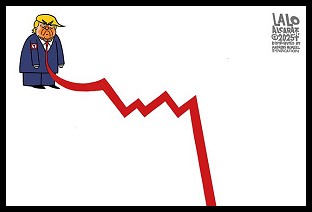 In an earlier item here, after reading just the transcript, I gave the advantage to Michael Moore in the big Moore/O'Reilly dustup in Boston.
In an earlier item here, after reading just the transcript, I gave the advantage to Michael Moore in the big Moore/O'Reilly dustup in Boston.
After seeing the actual broadcast, I'll stand by my original assessment. But I will add that Moore could have better made his case about Bush lying before the war had he remembered to mention Bush's false promise to use the military only as "a last option".
The fact is Bush promised time and again to do so. And in the process of that chest-thumping lie, found enough gullible (or cowardly) Senators --- including John Kerry --- to believe him at the time. They believed him enough that they were willing to vote for a foolish (and cowardly) resolution giving Bush a blank check to screw us over for decades and in the bargain send thousands to their deaths for, shall we charitably call them, dubious reasons.
That little historical fact --- the UN Inspectors who were on the ground, had complete run of the country, and had requested just another 30 or 60 days to complete their work --- is frequently overlooked by both the Anti-Warriors and the Bush Apologists. The latter by convenience, no doubt. And the former have so many Adminstration lies and deceptions to keep track of, it no doubt gets to difficult to remember them in the heat of being bloviated at. Especially on air. Especially by O'Reilly.
Moore was, however, smartly able to get the concession from O'Reilly that this war based on a mistake.
But to the larger point was this key exchange...One that is really at the crux of the entire anti-war argument of folks like myself. And one that I would ask any reader to consider well for themselves:
MOORE: So you would sacrifice your child to secure Fallujah? I want to hear you say that.
O'REILLY: I would sacrifice myself—
MOORE: Your child—Its Bush sending the children there.
O'REILLY: I would sacrifice myself.
MOORE: You and I don't go to war, because we're too old—
O'REILLY: Because if we back down, there will be more deaths and you know it.
MOORE: Say ‘I Bill O'Reilly would sacrifice my child to secure Fallujah'
O'REILLY: I'm not going to say what you say, you're a, that's ridiculous
MOORE: You don't believe that. Why should Bush sacrifice the children of people across America for this?
...
O'REILLY: I'm glad we've had this discussion because it just shows you that I see the world my way, you see the world your way, alright—and the audience is watching us here and they can decide who is right and who is wrong and that's the fair way to do it. Right?
MOORE: Right, I would not sacrifice my child to secure Fallujah and you would?
O'REILLY: I would sacrifice myself.
MOORE: You wouldn't send another child, another parents child to Fallujah, would you? You would sacrifice your life to secure Fallujah?
O'REILLY: I would.
MOORE: Can we sign him up? Can we sign him up right now?
O'REILLY: That's right.
MOORE: Where's the recruiter?
O'REILLY: You'd love to get rid of me.
MOORE: No I don't want—I want you to live. I want you to live.
O'REILLY: I appreciate that. Michael Moore everybody. There he is…
Never mind O'Reilly's false machismo there (I'm sure the U.S. Military could find a place for him if he really meant what he said about sacrificing himself. Apparently, the U.S. Army has just instructed a 67 year-old officer who served for 41 years to report for a physical like 5600 other "retired" non-reservists who have been informed that they may soon be called back to active duty in Iraq!)...But the real question is, would you sacrifice your child to secure Fallujah?
If the answer is yes, I'm sure there's a Recruiting Center nearby. And if the answer is no, but that you'd sacrifice yourself, well, again, I'm sure there's a Recruiting Center nearby and they'd be thrilled to see you!
But if the answer is no on both accounts, and yet you are either in favor of this war, or in favor of Bush this November, then you're either a liar or a hypocrite.
Perhaps if a few more lawmakers asked that question of themselves, or their kids (and that would include those like Bush and Cheney who both opted out of defending their country with their lives when they had the chance, and apparently haven't encouraged their own kids to sign up either!) we'd not be in this fine mess today.
America would be safer for it and a thousand more Americans would be alive to enjoy it.


 Sunday 'Zero Day' Toons
Sunday 'Zero Day' Toons Soc. Sec. Expert Warns DOGE Hastening Collapse, Privati-zation: 'BradCast' 4/10/2025
Soc. Sec. Expert Warns DOGE Hastening Collapse, Privati-zation: 'BradCast' 4/10/2025 'Green News Report' 4/10/25
'Green News Report' 4/10/25
 Trump Blinks, Chaos Reigns, Markets Spike as Many Tariffs Remain Despite 90-Day 'Pause': 'BradCast' 4/9/25
Trump Blinks, Chaos Reigns, Markets Spike as Many Tariffs Remain Despite 90-Day 'Pause': 'BradCast' 4/9/25 SCOTUS Deportation Ruling Grimmer Than First Appears: 'BradCast' 4/8/25
SCOTUS Deportation Ruling Grimmer Than First Appears: 'BradCast' 4/8/25 'Green News Report' 4/8/25
'Green News Report' 4/8/25 Cliff Diving with Donald: 'BradCast' 4/7/25
Cliff Diving with Donald: 'BradCast' 4/7/25 Sunday 'Don't Look Down' Toons
Sunday 'Don't Look Down' Toons 'Green News Report' 4/3/25
'Green News Report' 4/3/25 'Mob Boss' Trump's Trade Sanctions Tank U.S., World Markets: 'BradCast' 4/3/25
'Mob Boss' Trump's Trade Sanctions Tank U.S., World Markets: 'BradCast' 4/3/25 Crawford Landslide in WI; Booker Makes History in U.S. Senate: 'BradCast' 4/2/25
Crawford Landslide in WI; Booker Makes History in U.S. Senate: 'BradCast' 4/2/25 Judge Ends Challenge to GA's Unverifiable, Insecure Vote System: 'BradCast' 4/1/25
Judge Ends Challenge to GA's Unverifiable, Insecure Vote System: 'BradCast' 4/1/25 Bad Court, Election News for Trump is Good News for U.S.: 'BradCast' 3/31
Bad Court, Election News for Trump is Good News for U.S.: 'BradCast' 3/31 Vets Push Back at Plan to Slash Health Care, 80K V.A. Jobs: 'BradCast' 3/27/25
Vets Push Back at Plan to Slash Health Care, 80K V.A. Jobs: 'BradCast' 3/27/25 Signal Scandal Worsens for Trump, GOP; Big Dem Election Wins in PA: 'BradCast' 3/26
Signal Scandal Worsens for Trump, GOP; Big Dem Election Wins in PA: 'BradCast' 3/26 'Emptywheel': Trump NatSec Team Should 'Resign in Disgrace': 'BradCast' 3/25/25
'Emptywheel': Trump NatSec Team Should 'Resign in Disgrace': 'BradCast' 3/25/25 USPS 'Belongs to the People, Not the Billionaires': 'BradCast' 3/24/25
USPS 'Belongs to the People, Not the Billionaires': 'BradCast' 3/24/25
 VA GOP VOTER REG FRAUDSTER OFF HOOK
VA GOP VOTER REG FRAUDSTER OFF HOOK Criminal GOP Voter Registration Fraud Probe Expanding in VA
Criminal GOP Voter Registration Fraud Probe Expanding in VA DOJ PROBE SOUGHT AFTER VA ARREST
DOJ PROBE SOUGHT AFTER VA ARREST Arrest in VA: GOP Voter Reg Scandal Widens
Arrest in VA: GOP Voter Reg Scandal Widens ALL TOGETHER: ROVE, SPROUL, KOCHS, RNC
ALL TOGETHER: ROVE, SPROUL, KOCHS, RNC LATimes: RNC's 'Fired' Sproul Working for Repubs in 'as Many as 30 States'
LATimes: RNC's 'Fired' Sproul Working for Repubs in 'as Many as 30 States' 'Fired' Sproul Group 'Cloned', Still Working for Republicans in At Least 10 States
'Fired' Sproul Group 'Cloned', Still Working for Republicans in At Least 10 States FINALLY: FOX ON GOP REG FRAUD SCANDAL
FINALLY: FOX ON GOP REG FRAUD SCANDAL COLORADO FOLLOWS FLORIDA WITH GOP CRIMINAL INVESTIGATION
COLORADO FOLLOWS FLORIDA WITH GOP CRIMINAL INVESTIGATION CRIMINAL PROBE LAUNCHED INTO GOP VOTER REGISTRATION FRAUD SCANDAL IN FL
CRIMINAL PROBE LAUNCHED INTO GOP VOTER REGISTRATION FRAUD SCANDAL IN FL Brad Breaks PA Photo ID & GOP Registration Fraud Scandal News on Hartmann TV
Brad Breaks PA Photo ID & GOP Registration Fraud Scandal News on Hartmann TV  CAUGHT ON TAPE: COORDINATED NATIONWIDE GOP VOTER REG SCAM
CAUGHT ON TAPE: COORDINATED NATIONWIDE GOP VOTER REG SCAM CRIMINAL ELECTION FRAUD COMPLAINT FILED AGAINST GOP 'FRAUD' FIRM
CRIMINAL ELECTION FRAUD COMPLAINT FILED AGAINST GOP 'FRAUD' FIRM RICK SCOTT GETS ROLLED IN GOP REGISTRATION FRAUD SCANDAL
RICK SCOTT GETS ROLLED IN GOP REGISTRATION FRAUD SCANDAL VIDEO: Brad Breaks GOP Reg Fraud Scandal on Hartmann TV
VIDEO: Brad Breaks GOP Reg Fraud Scandal on Hartmann TV RNC FIRES NATIONAL VOTER REGISTRATION FIRM FOR FRAUD
RNC FIRES NATIONAL VOTER REGISTRATION FIRM FOR FRAUD EXCLUSIVE: Intvw w/ FL Official Who First Discovered GOP Reg Fraud
EXCLUSIVE: Intvw w/ FL Official Who First Discovered GOP Reg Fraud GOP REGISTRATION FRAUD FOUND IN FL
GOP REGISTRATION FRAUD FOUND IN FL




















 Surely I'm not the first to mention this, but it occured to me tonight that if John Kerry wins, we'll have our first African-American First Lady!
Surely I'm not the first to mention this, but it occured to me tonight that if John Kerry wins, we'll have our first African-American First Lady! Not even sure what to make of this one. Following up on a story headlined "
Not even sure what to make of this one. Following up on a story headlined "
 Yeah...
Yeah... In
In 


















